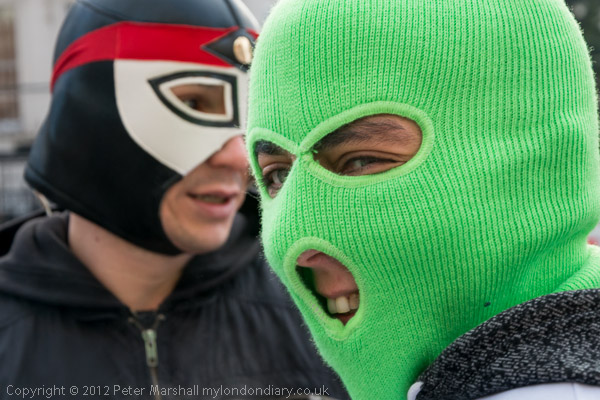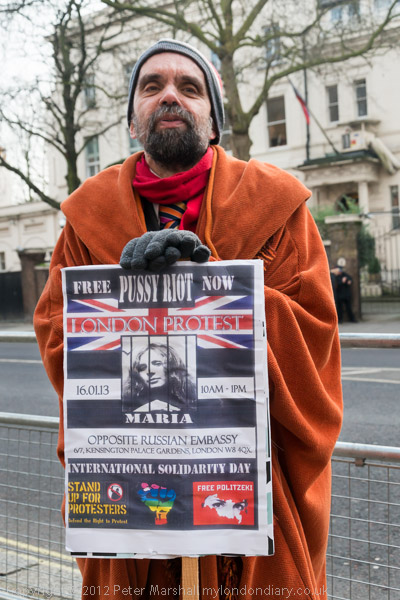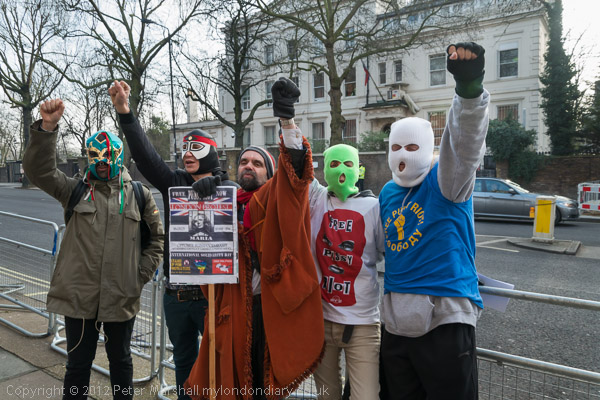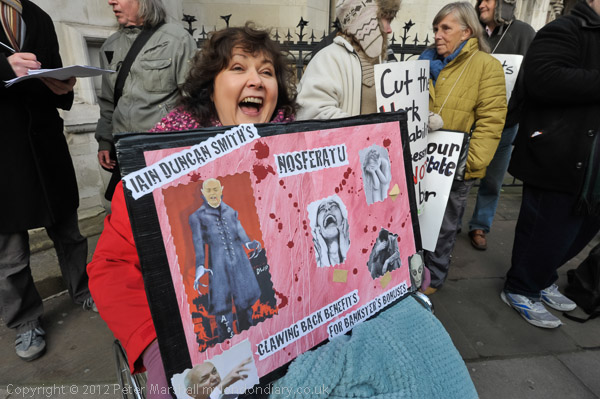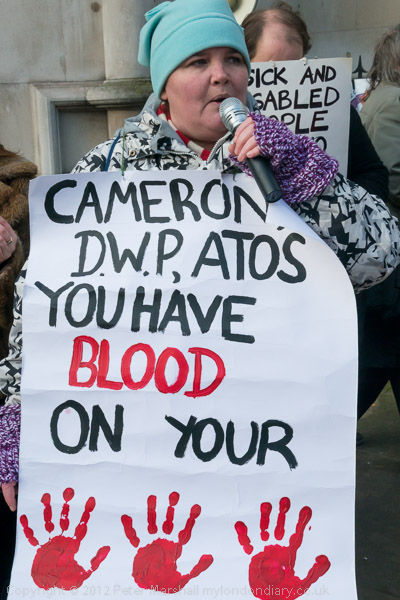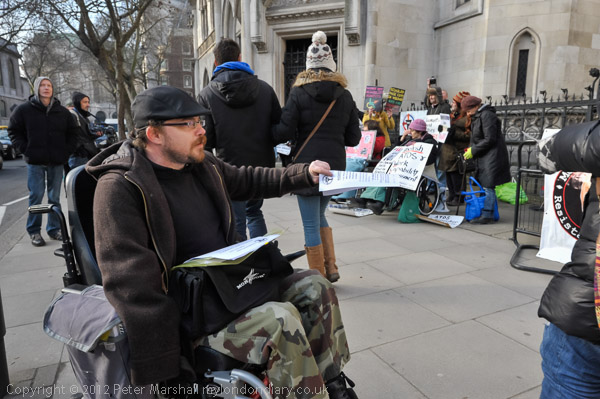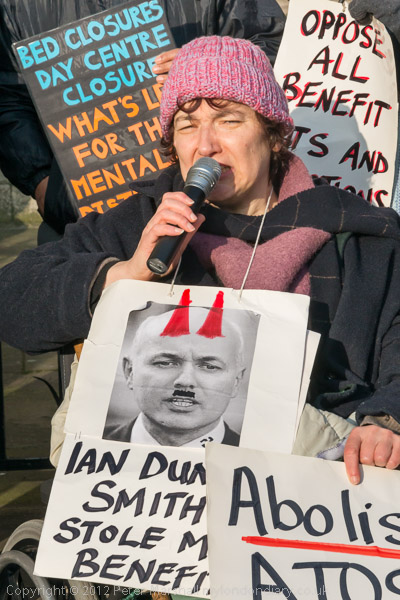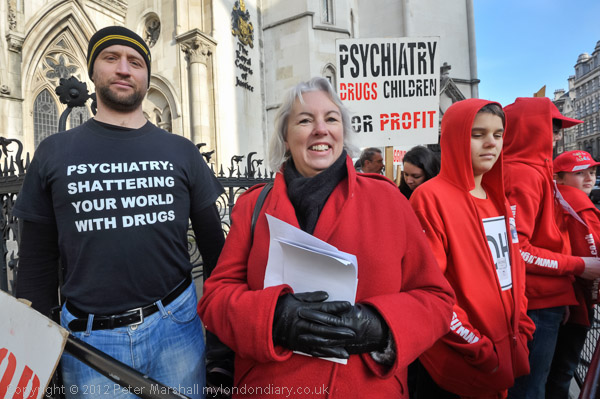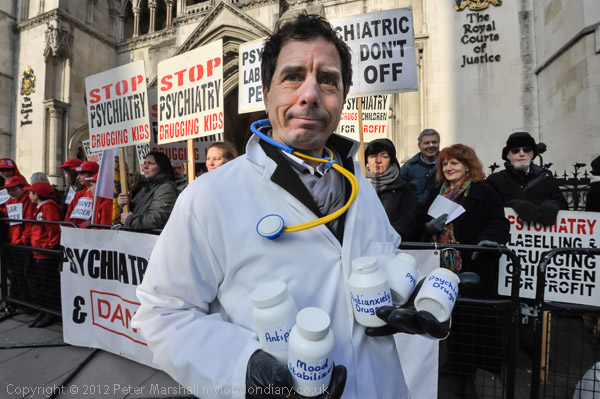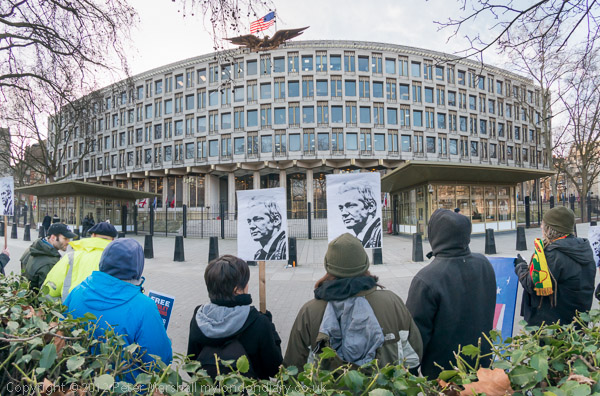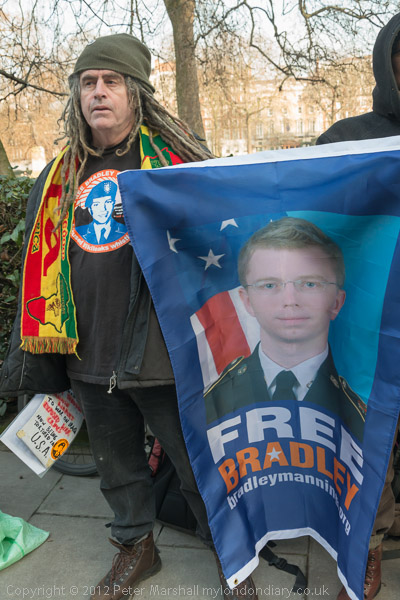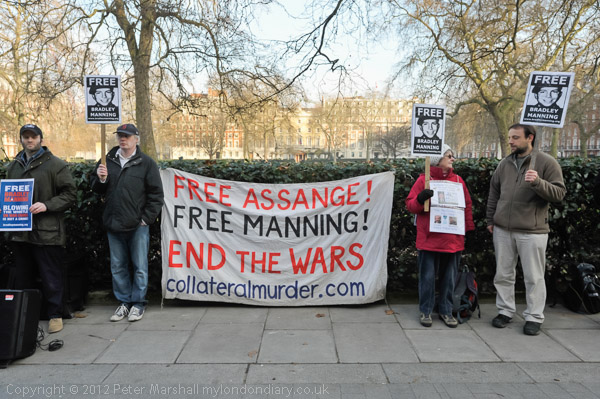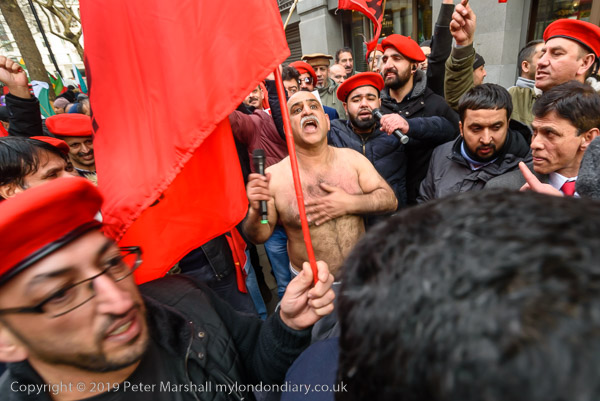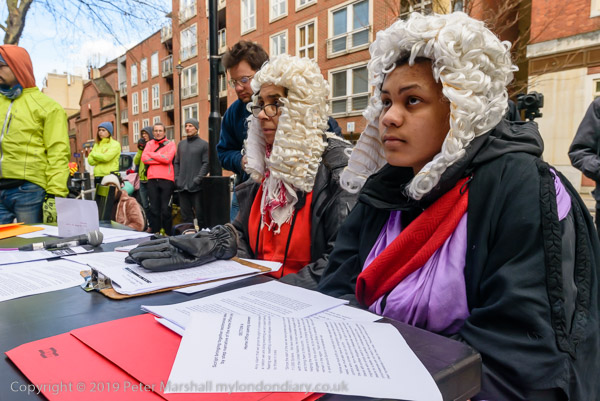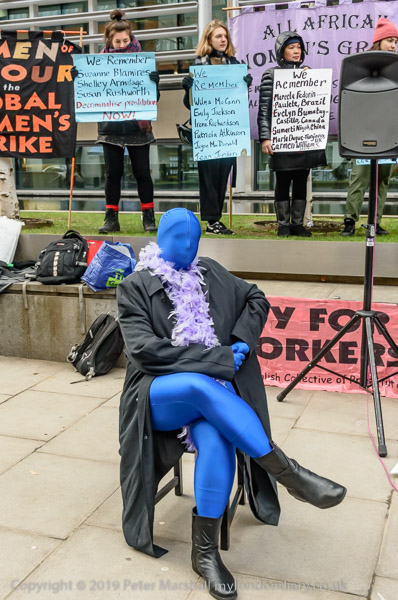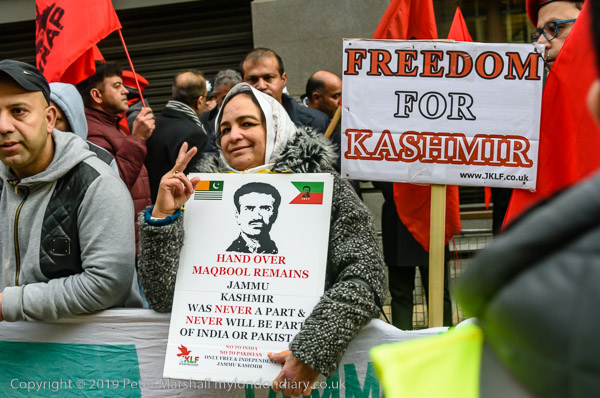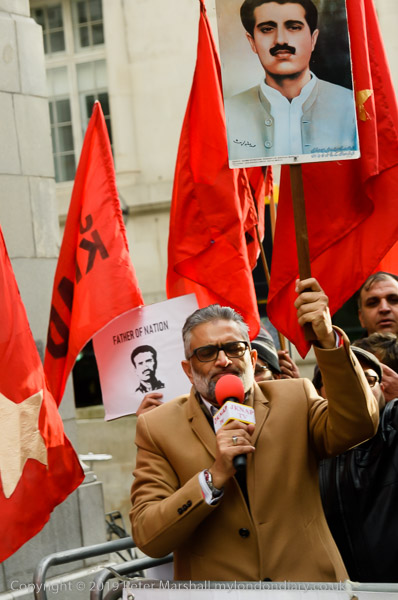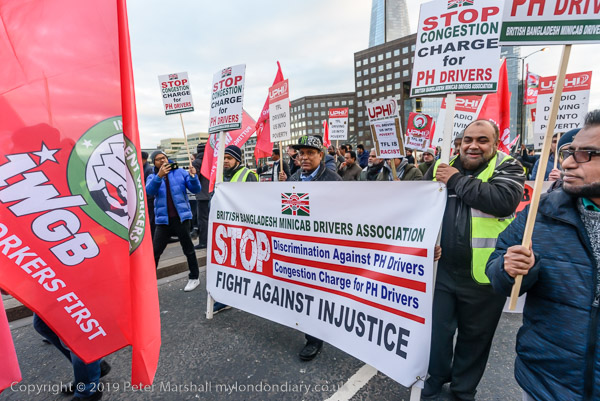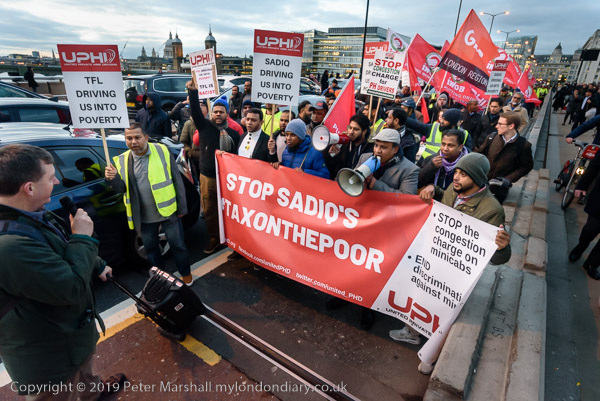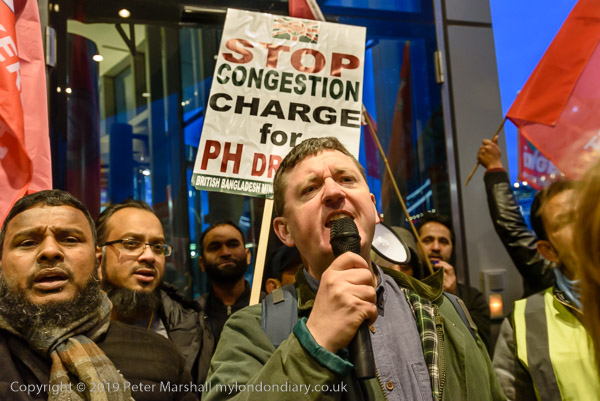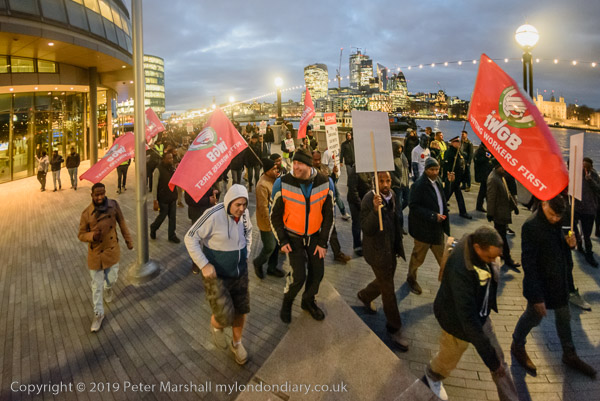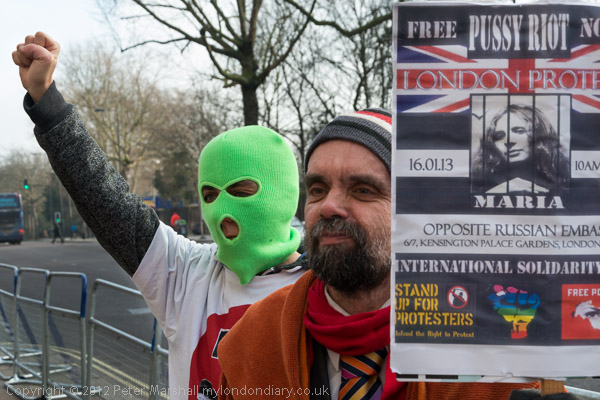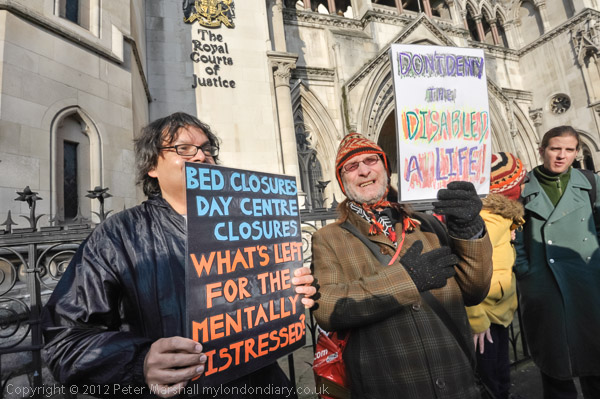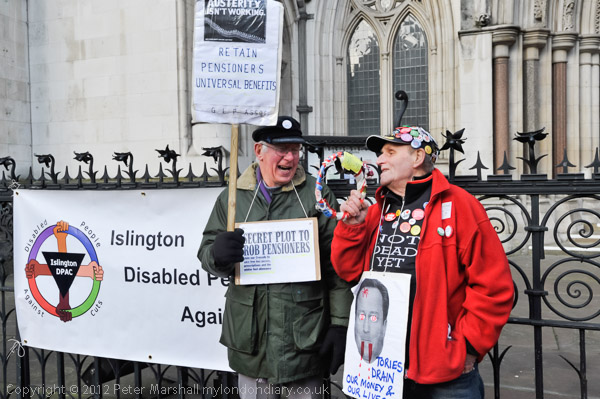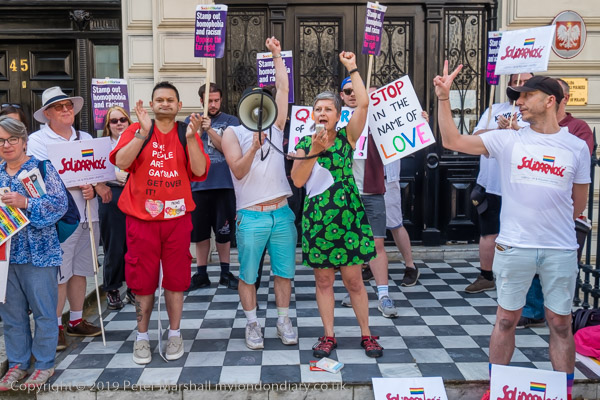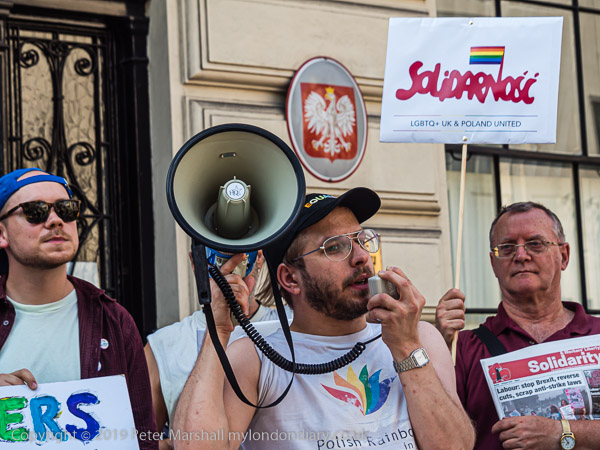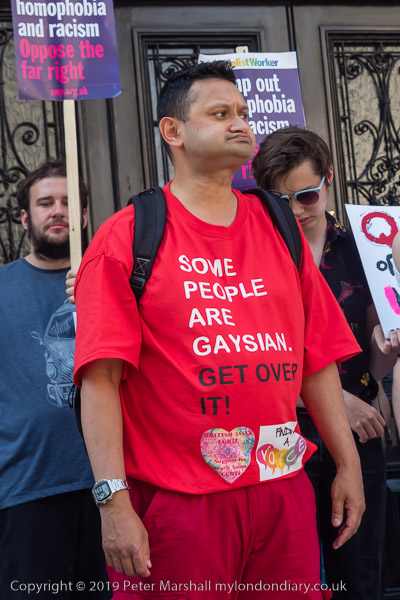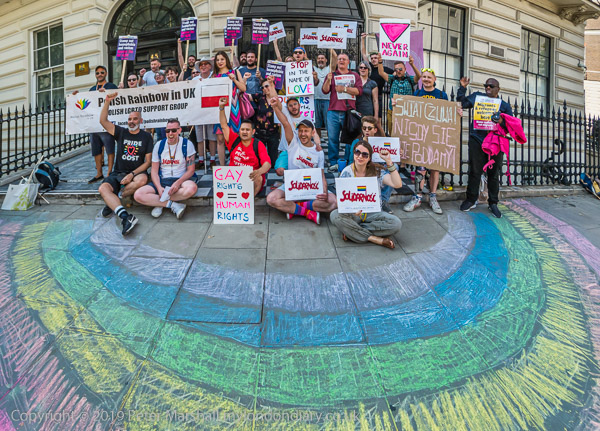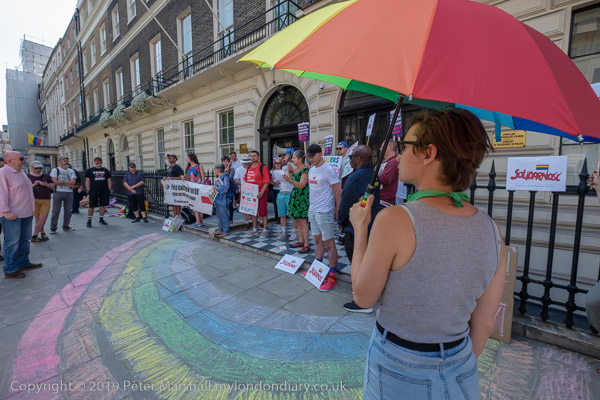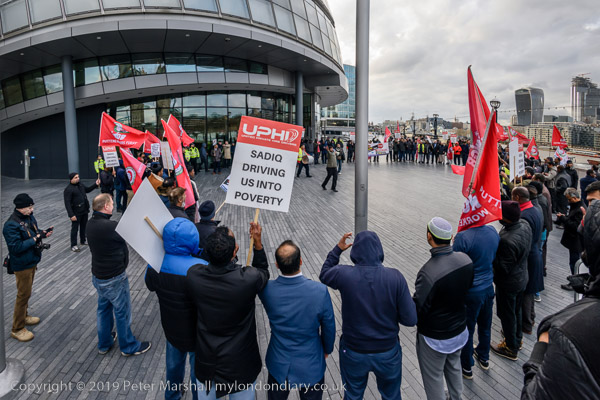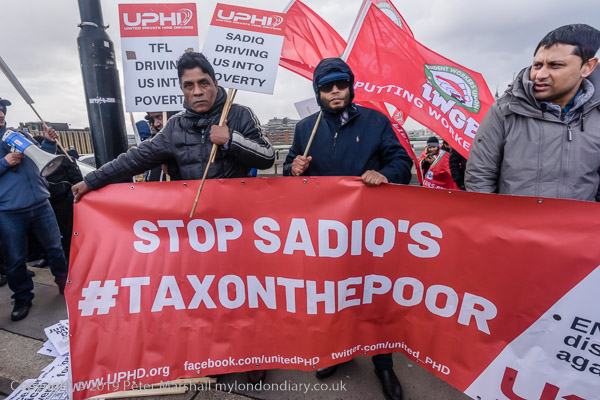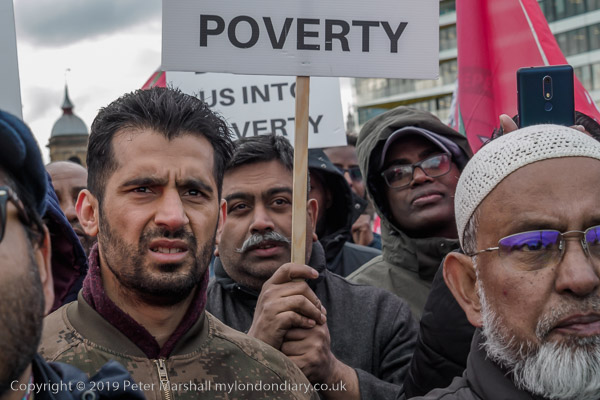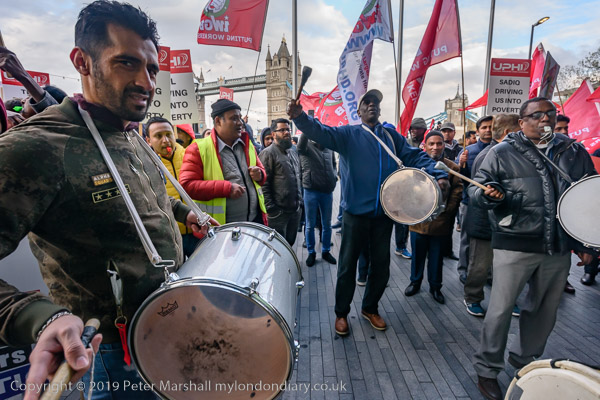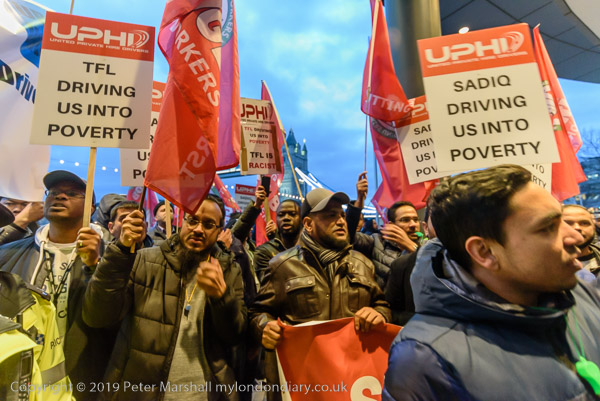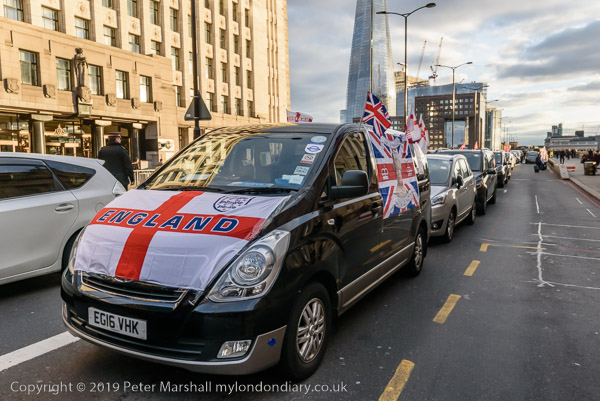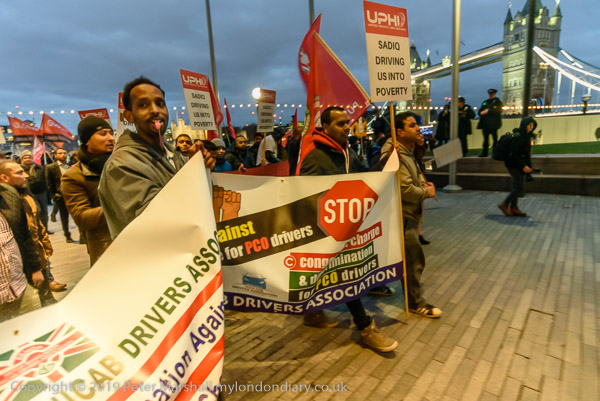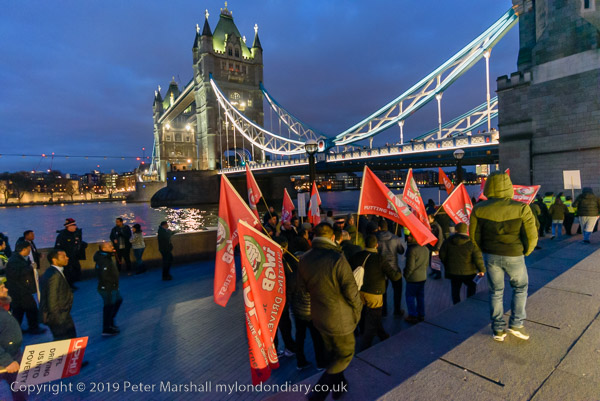Alevi, Flag Wavers, Fuel Poverty & A Party – London on Saturday February 16th 2013
Alevi Protest Discrimination in Turkey & UK
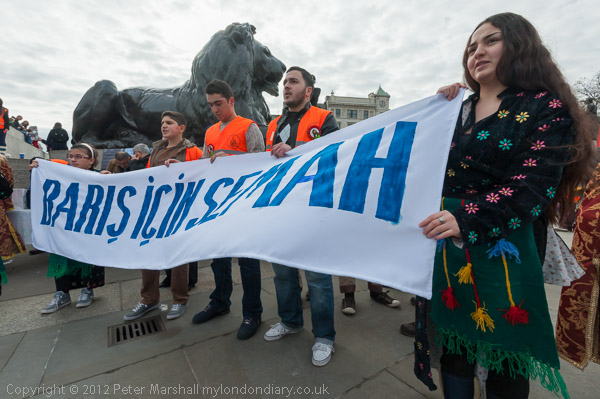
The Alevi are Turkey’s largest religious minority, with between 10 and 20 million of them living in the country and worshipping in their own language. Their religion is Islamic but men and women worship together, and women are not required to cover their hair and poetry, music and dance are central to their worship. It is a distinct form of Muslim religion which is related to Shi’ism, which contrasts with the official Turkish Sunni practice.
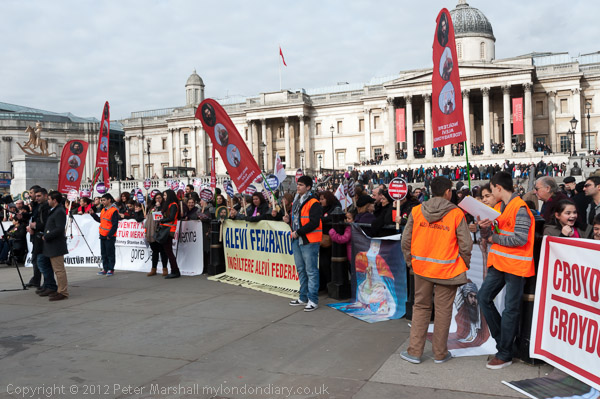
It is a religion that cuts across Turkey’s ethnic groups, and although most Alevi are ethnic Turks about a quarter of Turkey’s Kurds are also Alevi. They have been persecuted in Turkey for centuries, often attacked and sometimes killed, and are not allowed to build worship houses. While Christian and Jewish children are exempted from the compulsory Sunny Islam religious classes in Turkish schools, Alevi are not.
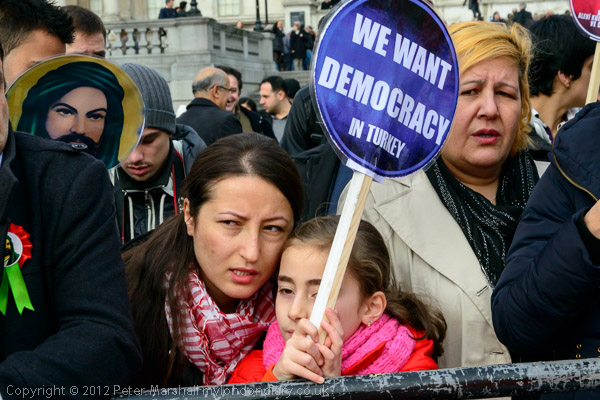
Their protest in Trafalgar Square called for democracy in Turkey and an end to discrimination and persecution, and an end to the compulsory religious education. They also called for the UK government to live up to its responsibilities for all immigrant communities whose views they say are ignored here, calling on immigrants to ‘Unite and Fight’ to get political representation that would demand equal treatment over health and education and fighting crime.
Alevi Protest Discrimination in Turkey & UK
Defend the Union Flag
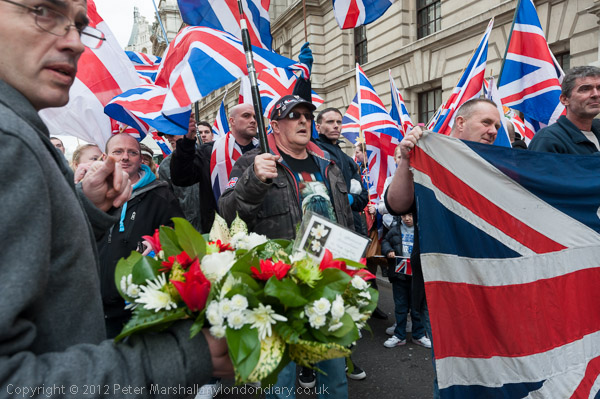
The Defend the Union Flag protest was called by the ‘South-East Alliance’ a small extreme right anti-immigration group of former English Defence League, whose leader Paul Pitt was thrown out of the EDL in 2012 to support Loyalists in Belfast who were protesting against a decision that the Union Flag should only be flown on the City Hall there on 18 designated days.
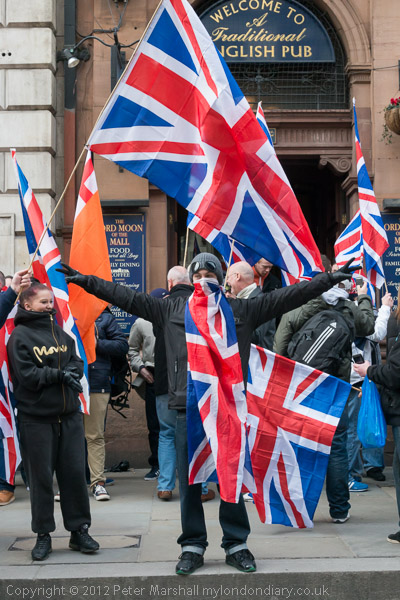
The protest was supported by other extreme right groups, notably Britain First, whose leader Paul Golding and Northern Ireland organiser Jim Dowson also spoke at the rally.
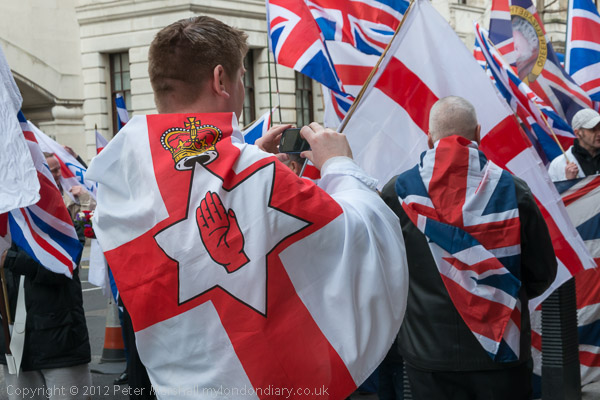
It was an uncomfortable event to photograph, and I received a number of threats and warnings from some of those taking party who I recognised from earlier protests I’d covered by the BNP, March for the Flag, EDL and Britain First, though many mistake me for another photographer who worked for Searchlight. A few who knew me were more friendly and came to talk with me. Although I’ve always made clear that I have different views, I’ve also tried to report these events objectively as a journalist.
Fuel Poverty Rally & DAN Roadblock
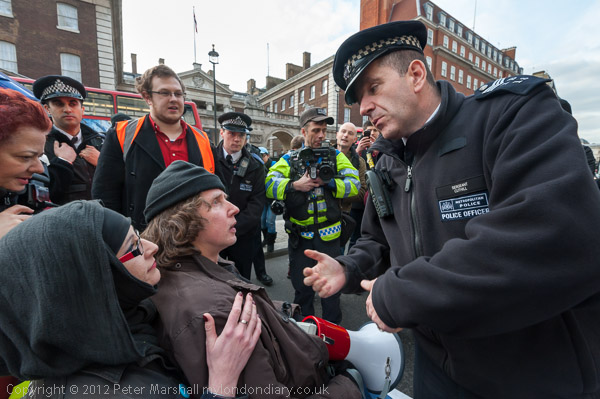
Back in 2013 we were also being faced with rising fuel bills, and Fuel Poverty Action had organised a national day of action. In London this began with a rally outside the Department of Energy and Climate Change on Whitehall and was then followed by a road block on Whitehall led by the Disabled Peoples Direct Action Network, DAN.
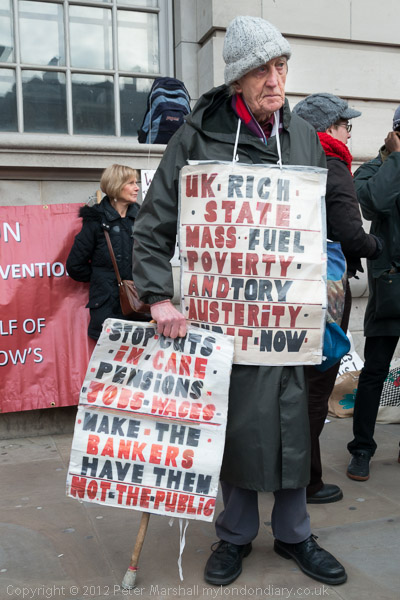
The rally on the pavement was crowded and was supported by Disabled People Against Cuts, Greater London Pensioners’ Association, Redbridge Pensioners’ Forum, Southwark Pensioners’ Action Group, Global Women’s Strike and others.
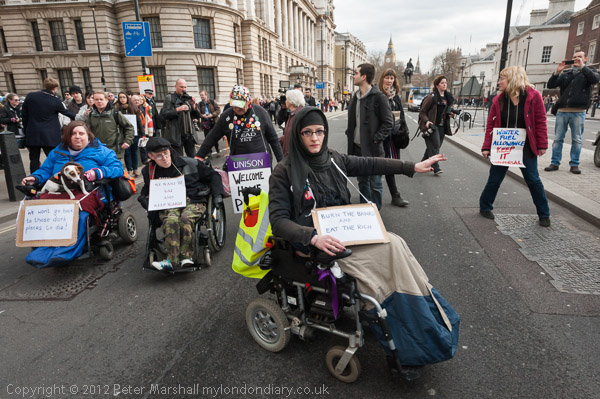
Cuts and price rises meant then that one in four families now has to choose between heating their homes adequately or eating properly. Many children now go to school hungry and even the wealthiest suburban areas now need to have churches and others setting up food banks for those unable to buy food.
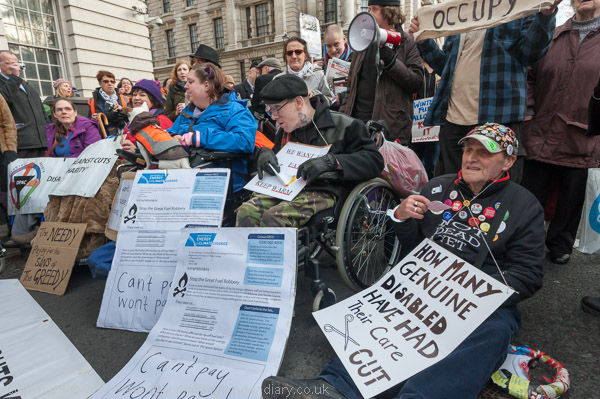
The government had cut services and cut benefits as a part of their austerity programme. Their energy policy is largely dictated by the Big Six energy companies, who continue to increase their profits while the consumers of energy suffer and had largely ignored the pressing need to increase renewable energy and cut power generation for gas and coal that was powering global warming.
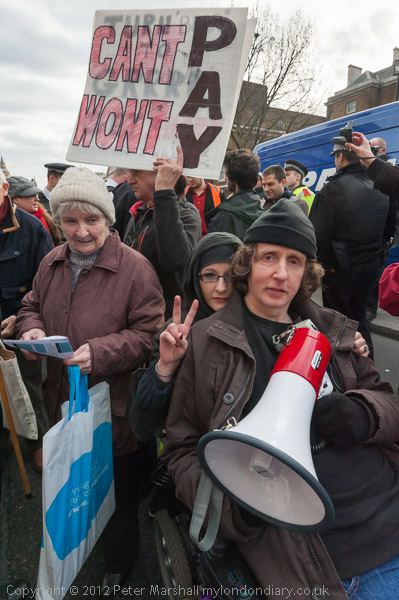
When DAN blocked the road, with some in wheelchairs chaining them together, the rally continued and police stood back and watched, diverting traffic away. After around 15 minutes they came to try and persuade them to leave the road. The arguments continued for around another 15 minutes, after which the protesters agreed they would leave in around a further 10 minutes. But I had to leave before they did so as I had a party to go to.
Fuel Poverty Rally & DAN Roadblock
Reclaim Love Valentines Party
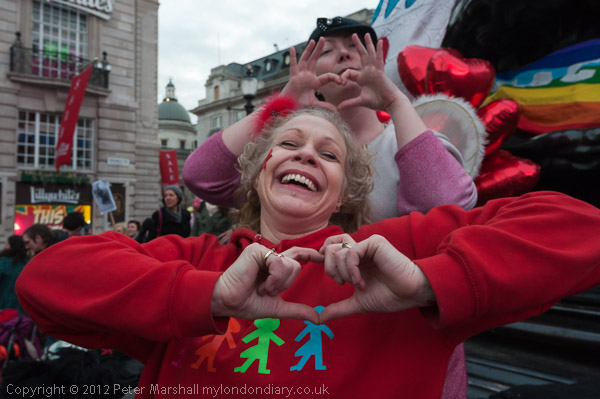
The 11th Reclaim Love free Valentine’s Party took place around Eros in Piccadilly Circus, aiming to spread peace and love around the world, and to reclaim love from its commercial exploitation.
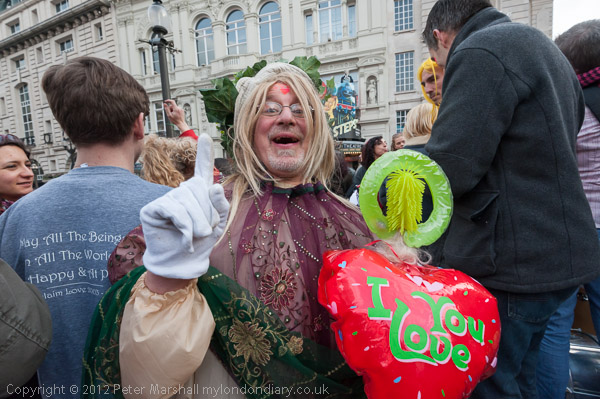
I had been held up photographing the DAN roadblock and had missed the major part of the event when several hundred people held hands in a large circle around Eros, chanting together ‘May All The Beings In All The Worlds Be Happy & At Peace’. But it was good to meet up with some friends and take some pictures.
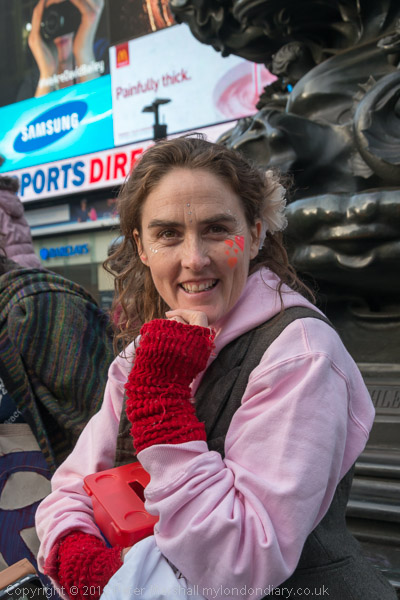
Venus Cumara, the originator of this annual event in 2003 told me this was this was the last she would organise and I made sure to get plenty of pictures of her. We occasionally talked about producing a book on the event together, but it hasn’t happened, though perhaps I might do so on my own one day.
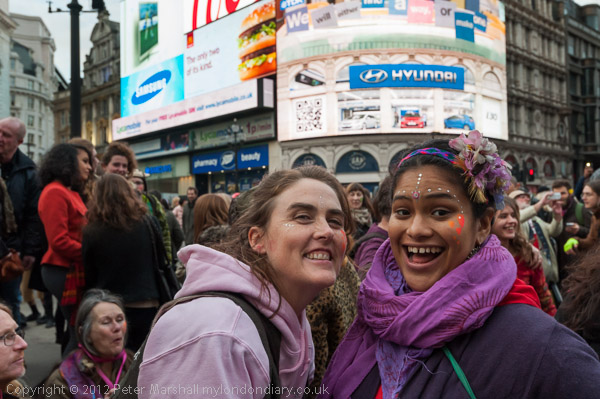
As I wrote back in 2013:
There are really very few such spontaneous events in London like this, and this is unique in central London. I’ve photographed most of these events and I hope that they will continue with others taking over the running in future years.
Reclaim Love Valentines Party
You can read more about all four events and see many more pictures on My London Diary:
Reclaim Love Valentines Party
Fuel Poverty Rally & DAN Roadblock
Defend the Union Flag
Alevi Protest Discrimination in Turkey & UK
